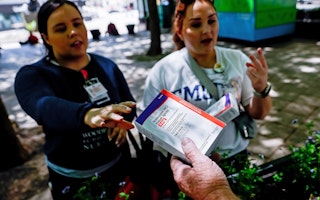Hungarian Drug Strategy: Punitive and Undemocratic
By Tamas Varga
Hungary has some of the harshest drug laws in the European Union: possession of illicit substances in small amounts (without any differentiation) is a crime punishable with two years’ imprisonment. Recent developments are leading advocates to believe that the situation on the ground is likely to get much worse.
In January 2011, the Hungarian Civil Liberties Union (HCLU) reported that the newly-elected Hungarian government had dropped the harm reduction–oriented national drug strategy and decided to create a new strategy based on zero-tolerance towards drug users. A draft of this strategy has been harshly criticized by professional organizations. The public consultation is now closed and the draft is expected to be discussed and approved in the spring.
Commissioned in 2009 by the Hungarian Parliament and the then reigning Socialist government, the original 2010–2018 drug strategy for Hungary was drafted by the National Institute for Drug Prevention (NDI) after a professional and public consultation process that involved all relevant NGOs, law enforcement officials, and an advisory group of leading researchers. The drug strategy they produced was based on a pragmatic public health approach whilst protecting human rights, and was praised by the Global State of Harm Reduction report as one of the best in the world.
When the new Fidesz government dropped this strategy in December 2010, it did so without consulting civil society groups or even its own advisory board, the Committee on Drug Coordination (Kábítószerügyi Koordinációs Bizottság, KBB). This purely political decision was justified by claiming that the strategy was “unacceptable” as it was based on “drug liberalization and harm reduction.”
The new zero-tolerance strategy, however, was almost unanimously criticized by professional networks and civil society organizations. This was a minor setback for the government, forcing them to put greater emphasis on harm reduction measures, whilst still maintaining an overall prohibitionist framework.
According to Peter Sarosi, Director of the Drug Program at HCLU, “The writers of the new strategy envisage a utopian idea of a drug free world. They refuse to investigate the alternatives to their zero tolerance approach and hardly pay any attention to harm reduction. The law enforcement approach inherent in the strategy is not capable of decreasing consumption. At the same time, the strategy does not appoint responsible officials to each strategic area and fails to set up a monitoring system for evaluating the results.”
Harm reduction programs across the country are already closing down due to cuts in government funding, risking increased HIV transmission and higher numbers of overdoses among people who use drugs. The government has recently stopped a program which offers small-scale (mostly) cannabis offenders a six month prevention or treatment program as an alternative to criminal sanctions, claiming that this referral system is not strict enough to deter young people from using drugs. Instead the government will waste greater public funds and police time catching young people on the streets instead of chasing violent criminals, or investing in voluntary treatment and prevention programs.
Despite the Ministry of Justice’s promise to take into account the criticisms from HCLU and other NGOs, we are witnessing yet another move by the present Hungarian government against European norms, disregarding scientific evidence, human rights, and the principles of democracy.
Until September 2013, Tamas Varga was a program officer with the Open Society Global Drug Policy Program.


